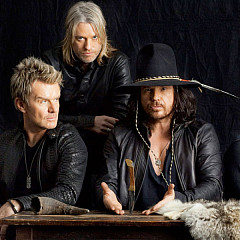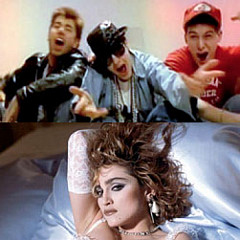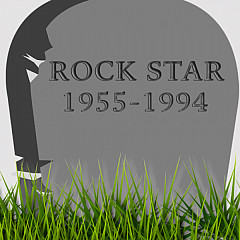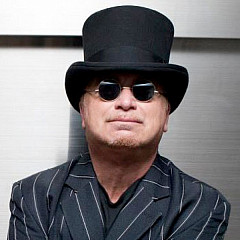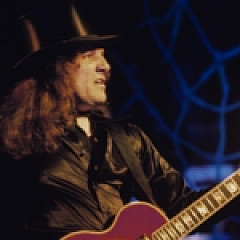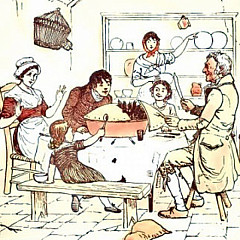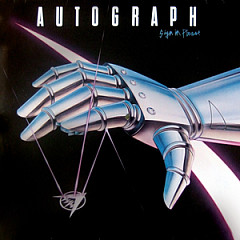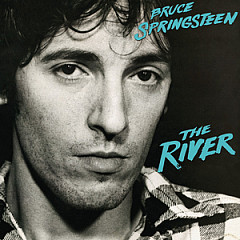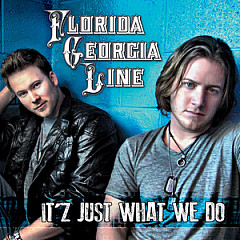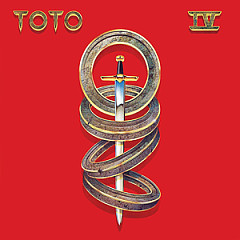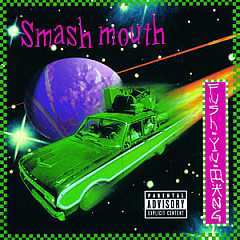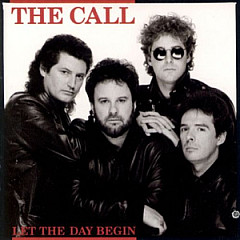
Unquestionably, Richard Marx is one of the most successful solo pop artists of all time. The numbers don't lie: he is the only solo artist to score seven straight Top 5 singles, right off the bat, a feat that stands today and may never be replicated. And as a songwriter, he has penned hits for some of the biggest names in music: Keith Urban, Kenny Loggins, Kenny Rogers, Luther Vandross among them.
When Songfacts spoke to Richard for a second time (we first first spoke with him in 2012), he was up for further discussion about specific hits he penned, as well as his collaborations with others, and making videos back when MTV mattered.
Richard Marx: I was on tour - a really long, 15-month tour - based on the first album. So, from the summer of '87 until the end of '88, I was on tour. And the first album [1987's self-titled] blew up. I experienced that first bout of pressure to write songs, because I knew as soon as I was off the road, it was time to make the second album. That old cliché of, "You have your whole life to write your first album, and six months to write the second." But I had written much of the first album the year I recorded it, so I wasn't freaked out about the pressure at all. But there were three million people who had bought my first record, and I felt an obligation to deliver a better record - better songs, better craft.
I had a bunch of songs that I knew were going to be on the Repeat Offender album, and I had touched upon a bit of social commentary on the first album with a song called "Have Mercy." But that's never really been my thing. Not as an artist, anyway. If you and I go to dinner, I'm opinionated as you can get about various things, but that's not what I wanted to write about musically.
So, I was in a hotel room on tour, and I was watching 60 Minutes. There was a piece on this woman, Dr. Lois Lee, who created the Children Of The Night foundation, and I was just riveted by the story. The next day, I had my manager reach out to Dr. Lee. We got on the phone, and I said, "I want to help. I also think that there is a song here. But I can't remotely write this without really researching it."
So, when I got off the road, she connected me with three or four of the kids that had been sheltered by the foundation, and had been on the streets - had been prostitutes, drug addicts, in rehab - and had their lives together. I spent a couple of days just hanging out with these kids, and they were very generous with telling me what their lives had been like. So, I wrote the lyric based upon the conversations I had with these kids. And immediately, I knew the only right thing to do was to make all of the proceeds from the song go to the foundation. Luckily, the song was a pretty big hit, and the money generated from it built a whole new shelter in Los Angeles, and I continue to support them to this day.
"Thousands of children have Richard Marx imbedded in their hearts and their memories because of his generous gift that helped build the Children Of The Night home where over 3,000 children to date have lived. Many of the children still talk about Richard and their experience in the studio singing with him on the 'Children Of The Night' song. Just the mention of Richard Marx brings tears of sentiment to our eyes. Thank you Richard."
Learn more at childrenofthenight.org
He sent me a couple of the tracks on the record, and I loved the sound of the band, but I was really impressed with the singer, Janet Gardner. I thought she was incredible. It was inspiring for me. I thought, "I'd love to write a song for her voice." So, I wrote the music really quickly, and I was under the gun. I write music really quickly, and lyrics take me a long time sometimes. So really, out of just the expedience factor, I called Fee, who writes really fast, and brilliantly.
I sent him a work tape of the song, and I had the title. I sang that bit - I been living on the edge of a broken heart - and he just ran with it, and finished the lyrics. I think two weeks later, they asked me to produce it, as well. So, I had one day off from tour, I flew to LA, we cut the record, and it became a hit.
Although their subsequent albums were not as commercially successful, the band remains active today (despite Kuehnemund passing away in 2013).
Marx: Yeah. I sang on a bunch of his songs. I sang on "All Night Long," "You Are," "Running With The Night," and at least two or three more. Those were the hits. But I also sang on a song on Can't Slow Down called "The Only One," and that was my favorite, because it's just me and Lionel - there are no other background singers. You can really hear me - especially at the end of that one. It's just me and Lionel singing harmonies together, and that was a blast.
He gave me a job as a background singer when I was 18, when I first moved to LA. The first job I ever had in the record business was singing on Lionel's first album. He was so generous and so kind, and very much a mentor to me back in those days. I don't know if you've ever met him or talked to him, but he's just the sweetest guy in the world.
Songfacts: What are some memories of singing the part of "All Night Long" in Swahili?
Marx: That actually got changed. I don't know if it was Swahili or if it was an African chant, but it kept changing. He kept getting different notes from people saying, "That's actually not what that means. Change this vowel." So, we had to do it a couple of times on different days.
But working with him in the studio was always just fun. He makes everything fun. He has got an incredible energy about him - positive energy. I can't say enough about him. Sometimes, he would just have me sing and he would be producing. Every session I ever did with Lionel, or for him, was a very fun atmosphere. I've been on so many sessions where it's a downer, and you just try to get through it and nobody is having fun. Lionel is always having fun - no matter what.
Songfacts: What did you learn from writing songs with Kenny Rogers?
Marx: I think Kenny would be the first to tell you that we never really wrote any songs together. Well, that's not true. "What About Me?," which was the first hit I ever had as a writer, primarily David Foster and I wrote the music, and Kenny and I wrote the lyrics. So, there was a little bit of collaboration there. But "Crazy," he literally wrote one word. Back in those days, I was more than happy to share in order to further my career and play the game that up-and-coming songwriters have to play. And it turned into a great thing, because those songs were big hits.
Interestingly enough though, maybe eight or nine years ago, I was producing a Canadian country artist named George Canyon, and I had an idea for a song. I hadn't seen Kenny for a long time, and I was doing a concert down in Atlanta where he lives. I called him and said, "I've got an idea. Do you have any time for me to come over and show you this song idea?" We started it at his house that day, then on the phone and through email, we wrote this song called "When Love Is All You've Got," and it's my favorite song I've ever written with Kenny. It's a really, really good song. It wasn't really the right kind of song for him to sing, but it was a hit for George Canyon in Canada. So, I'm really proud of that song. And that was a real, true collaboration between me and Kenny.
Songfacts: What were some of your favorite collaborations, and why?
 Marx: There have been really successful collaborations that were maybe not as much fun or as enjoyable to create, which is not always the criteria - sometimes songs that have really kicked my ass to write have become really successful, and ones that I'm really proud of. By the same token, some of the biggest songs I've written, "Right Here Waiting" is a great example, I wrote it in about 20 minutes. There is a thing about effortlessness, when you just go with it. I've had plenty of examples on both sides of that coin.
Marx: There have been really successful collaborations that were maybe not as much fun or as enjoyable to create, which is not always the criteria - sometimes songs that have really kicked my ass to write have become really successful, and ones that I'm really proud of. By the same token, some of the biggest songs I've written, "Right Here Waiting" is a great example, I wrote it in about 20 minutes. There is a thing about effortlessness, when you just go with it. I've had plenty of examples on both sides of that coin. For instance, I've written several songs with Keith Urban that have all been hits for him, and none of them have been particularly easy or fun to write, but I couldn't love them more - especially the last one we had a few years ago called "Long Hot Summer." That's my favorite song that Keith and I have written together. And part of the reason why I love it so much is because unlike many of the songs that I've written where I end up producing as well, Keith has a really great relationship with Dann Huff, the producer in Nashville who I have great respect for. The records that they made of the songs that I co-wrote with Keith are some of my favorites. I would love those songs if I had nothing to do with them. So, just from a music fan standpoint, when I hear "Long Hot Summer" and I hear "Better Life," I really enjoy those records and those songs. Just as a fan of music, having nothing to do with my participation.
Then again, the songs I wrote with Luther Vandross, we were really, really great friends, and I loved working with him in the studio, writing songs, and just being around him. He was somebody that inspired me to be better all the time. He was a great collaborator.
I've had some really fun and what I consider artistically really strong collaborations with Kenny Loggins. For me, that's been a great thing, because when I was in high school, Kenny was a huge influence on my singing, and my songwriting to a degree, too. I think Kenny is a very underrated songwriter. So, the songs we've written together, I really love. Those are the ones that come to mind the most for me.
Songfacts: What's the song you're most proud of that was not a hit?
I lost my dad in '97, and I had written a few songs over the years, processing it - the grief of losing him. Because I lost him very suddenly and very tragically, and we were really, really close. The song "Through My Veins" came after these other songs, but it was almost like the other songs were the lead-up to it. That one said exactly what it needed to say, and it was very therapeutic for me and for a lot of other people who have suffered losses similar to that. So "Through My Veins" is the one. [Richard's father, Dick Marx, was also a musician. He did the horn arrangement on "Children Of The Night" and the strings on "Now And Forever."]
Songfacts: How did you feel about MTV and making videos?
Marx: I wish I had more fun with it back in the day. I just look at it as a necessary evil. There were a couple of videos that were kind of fun to do. There was one I did for a song called "The Way She Loves Me" that was just a performance video out on Santa Monica Pier, and it was me and some of the guys that played on the record, and some that weren't even on the record but were just friends of mine. So that was a great hang. And we had all these gorgeous girls hanging around. We went on KISS-FM - the radio station in LA - and told people, "Come down, we're making a video." So, we had a really nice pack of people down on Santa Monica Pier. That was just a fun day to make a video.
But the concept videos that are more like films, although there are some that I'm really proud of - I think the "Hazard" video is really well done - it was just so boring to me. I would much rather be in a room writing songs or doing a concert than standing and waiting for them to light the scene. That's why acting never appealed to me, because it was the constant waiting around and standing around. It's just not for me. And I'd say a little over half the videos that I've made I could see now, and other than laughing at my hair, say, "That's a pretty good job." And then there are some of them, I go, "Wow. What the fuck were we thinking? That was just so stupid."
June 20, 2018
Tour dates and more at richardmarx.com
Other interviews you might find of interest:
David Paich of Toto
Vonda Shepard
Dean Pitchford
More Songwriter Interviews

